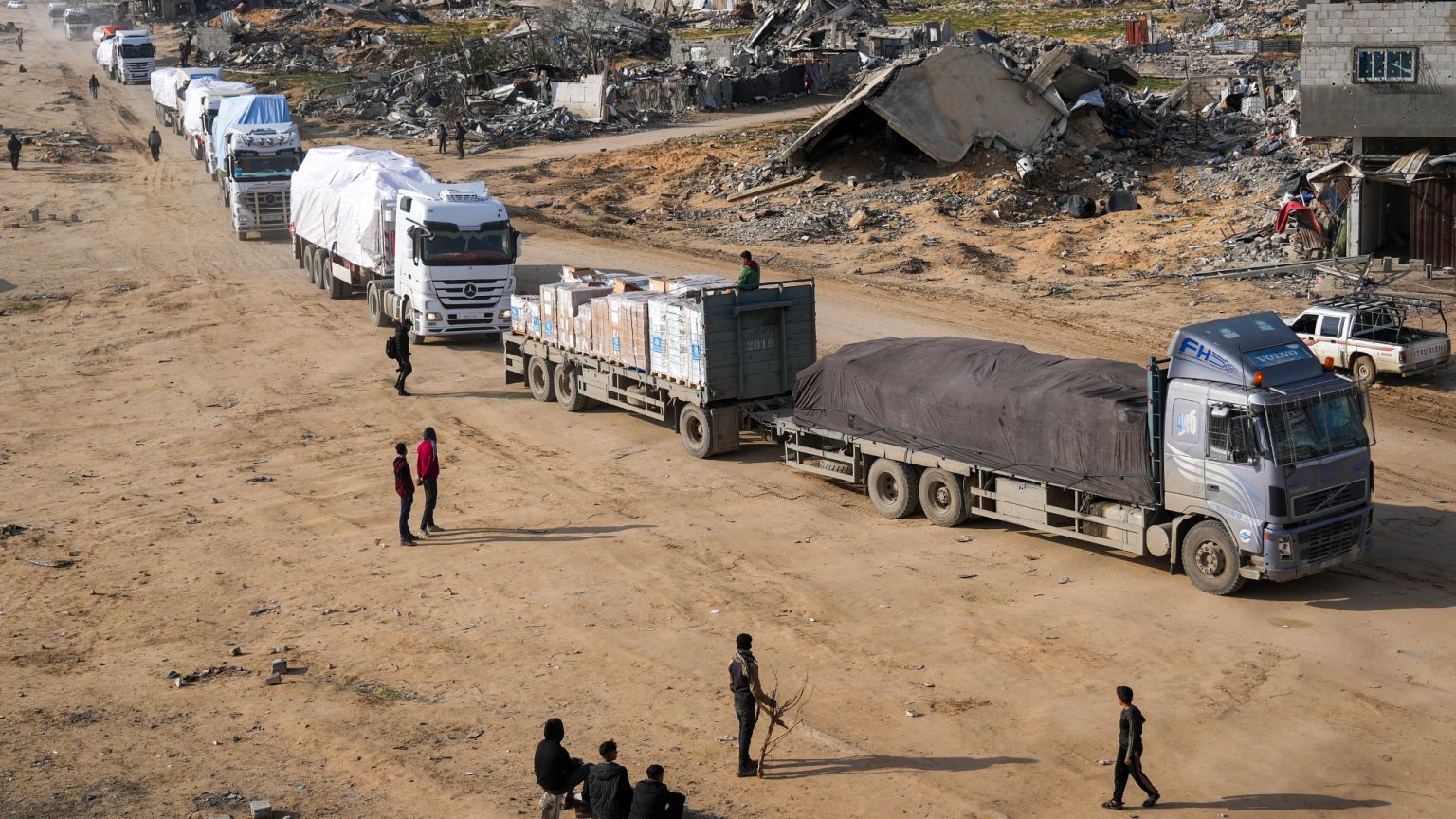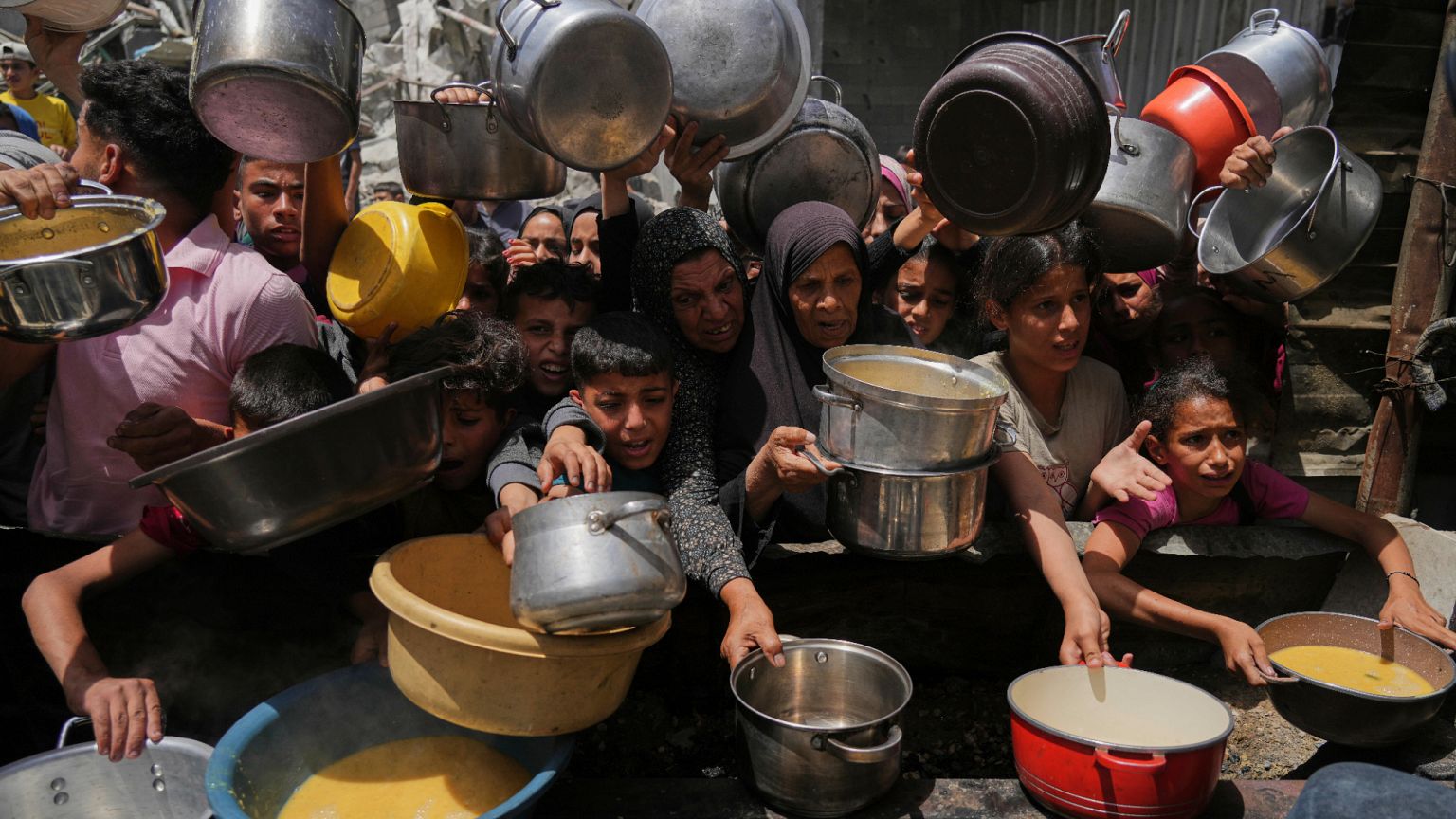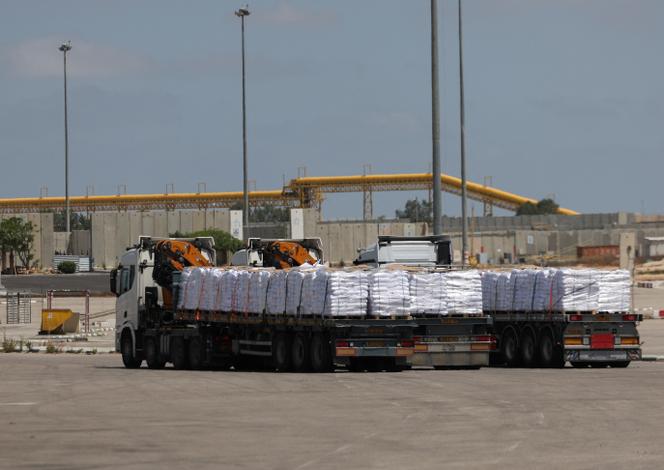After nearly three months of total blockade, Israel has permitted the entry of nine UN aid trucks into the Gaza Strip, responding to increasing global pressure over the worsening humanitarian crisis. This is the first trickle of humanitarian aid since March 2, despite escalating ground and air offensives across the besieged territory.
According to the United Nations, the trucks entered through the Karem Abu Salem (Kerem Shalom) crossing, but this limited movement is far from sufficient. Prior to the October 7, 2023 escalation, over 500 aid trucks entered Gaza daily.
“This is a drop in the ocean,” said UN humanitarian chief Tom Fletcher, emphasizing that massive-scale aid must resume immediately.

UN, WHO Warn of Imminent Famine
The World Health Organization (WHO) issued dire warnings, noting that two million people in Gaza are on the brink of starvation. WHO Director-General Dr. Tedros Adhanom Ghebreyesus stated that 160,000 tonnes of food remain stuck just minutes away from Gaza’s borders.
“People are dying from preventable diseases as medicines wait at the border,” he said during the World Health Assembly opening.
Pressure from Allies Behind Israel’s Decision
Israeli Prime Minister Benjamin Netanyahu admitted that the aid allowance followed pressure from allies. He noted in a video address that “even Israel’s greatest friends” found images of mass hunger intolerable.
However, Netanyahu clarified that only a “minimal” amount of aid would be permitted, as Israel continues its goal of taking “full control” of Gaza.
Global Reaction and Warnings of Sanctions
Leaders from 22 countries, including the UK, Canada, France, Germany, and Japan, signed a joint statement urging immediate and full aid access to Gaza. Britain, France, and Canada also warned of possible targeted sanctions if the situation doesn’t improve.
“Israel’s denial of essential humanitarian assistance… risks breaching International Humanitarian Law,” the UK government said.

Israeli Far-Right Ministers Oppose Aid Entry
Despite international pressure, far-right members of Netanyahu’s government have opposed any aid entry. National Security Minister Itamar Ben-Gvir called the move a “grave mistake”, while Heritage Minister Amichai Eliyahu claimed it undermines the war effort.
Casualties Mount Amid Renewed Offensive
Israel launched more than 30 air strikes in an hour on Monday, reportedly killing at least 150 Palestinians within 24 hours, including women and children. Gaza’s Health Ministry reports that at least 464 Palestinians have been killed over the past week.
Hospitals like Nasser Medical Complex and the Indonesian Hospital remain under siege, with medics and patients trapped inside.
Talks in Qatar Yield No Progress
Amid the humanitarian catastrophe, indirect negotiations between Hamas and Israel in Doha have stalled. Israel proposed ending the war in exchange for Hamas exile and Gaza demilitarization, a condition Hamas continues to reject.
Conclusion: Humanitarian Catastrophe Far From Over

The nine aid trucks represent a symbolic move under international pressure, but with famine looming, displacement surging, and no ceasefire in sight, Gaza’s humanitarian crisis is far from over. The international community remains divided, while civilians continue to pay the ultimate price.
Related Reading:
- How UN Aid Efforts Are Impacted by Conflict Zones
- Understanding the Gaza Blockade: A Decade of Siege
- What Is International Humanitarian Law?
Short URL: https://short.url/gaza-aid-may2025